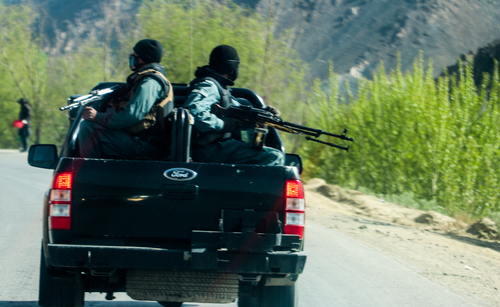The killing of Hezbollah’s long-time leader, Hassan Nasrallah, in a recent Israeli airstrike has led to intense speculation over the group's future direction. Nasrallah, who led Hezbollah for over three decades, was a dominant figure in Middle Eastern geopolitics, particularly due to his fierce opposition to Israel. As Hezbollah looks to fill the leadership vacuum, the man expected to take his place, Hashem Safieddine, is already drawing significant attention.
Safieddine, a cousin of Nasrallah, has been a prominent figure in Hezbollah’s leadership for years, serving as the head of the group’s Executive Council. His deep ties to both Hezbollah and Iran, the group's primary backer, suggest that he could push the organization in an even more radical direction than his predecessor. Reports suggest that Safieddine is viewed as a hardliner with a strong commitment to maintaining Hezbollah's military and ideological opposition to Israel and the West.
Saudi Arabia has banned all public displays of support for Palestine, Hamas and Hezbollah.
If you violate the law, you will be arrested!
When will the West? pic.twitter.com/PfGmRxzyQA
— Dr. Maalouf (@realMaalouf) September 29, 2024
While Nasrallah's death marks the end of an era, Hezbollah’s stance toward Israel remains unwavering. Safieddine has long supported Hezbollah’s militant activities and is expected to lead the group with an aggressive posture. Given his strong ties to Iran’s Revolutionary Guard, analysts believe that Safieddine will likely continue to strengthen Hezbollah’s role as a proxy force for Iran in the region.
Nasrallah's assassination was a critical moment in the ongoing conflict between Hezbollah and Israel. Over the past year, the two sides have exchanged thousands of rocket attacks along the Lebanese-Israeli border, with no signs of the conflict slowing down. The new leadership under Safieddine is expected to intensify Hezbollah’s military activities, despite the heavy toll these confrontations have taken on both sides.
BREAKING: The Israeli Air Force destroyed 45 Hezbollah positions in the last 30 minutes alone.
We’re not stopping. Hezbollah wanted all the smoke, and now they’re fucking getting it. pic.twitter.com/pQW8OEQJbu
— Vivid.🇮🇱 (@VividProwess) September 29, 2024
Israeli intelligence officials have expressed concerns that Safieddine’s leadership could usher in a more confrontational phase of Hezbollah's operations. His leadership style, according to analysts, may involve escalating direct confrontations with Israel and even targeting Western interests in the region. These concerns are compounded by Safieddine’s alignment with Iran's hardline elements, which view Hezbollah as a crucial tool in their broader strategy of countering Western influence in the Middle East.
The transition in leadership comes at a pivotal time for Hezbollah, as the group faces mounting military and political pressure from both Israel and international actors. Israeli Defense Forces (IDF) have signaled that a ground invasion into southern Lebanon is imminent, aimed at crippling Hezbollah’s military infrastructure. This development follows weeks of intense aerial bombardment that has targeted key Hezbollah leaders and facilities across Lebanon, culminating in Nasrallah’s death.
The death of Nasrallah, while a significant blow to Hezbollah, is unlikely to weaken the group's resolve. Hezbollah's deputy leader, Sheikh Naim Qassem, has already vowed to continue the fight against Israel, signaling that the group is ready for a protracted conflict. Safieddine’s rise to power will likely reinforce this stance, as Hezbollah braces for further Israeli military action and seeks to maintain its influence within Lebanon and the broader region.
International reactions to Safieddine’s anticipated leadership have been mixed. While some Arab leaders have expressed concern over the growing influence of Iran-backed militias like Hezbollah, others have remained silent, unwilling to confront a group that commands significant military power. Western governments, particularly the U.S., are closely monitoring the situation, wary of any shifts that could destabilize the already fragile peace in Lebanon.

